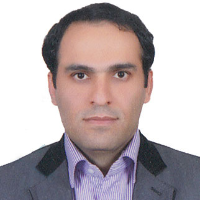The Role of Problem Solving Skills and Self-efficiency in explaining the High Risk Behaviors of Students
Author(s):
Abstract:
Background and Purpose:
High risk behaviors, in their comprehensive concept, include a series of behaviors which not only seriously damage the person himself and the individuals important in his life, but also can cause unintentional damages to others. This study was conducted to investigate the role of problem solving skills and self-efficiency in explaining the high risk behaviors of students.
Method
It was a corelational study. The research population included all the female students studying at the public secondary schools of District 2 of Rasht in the academic year of 2015-2016. 250 students selected by cluster sampling completed the problem solving scale (Cassidy & Long, 1996), adolescent social self-efficiency scale (Kenly, 1989), and risk-taking scale (Zadeh Mohammadi, Ahmadabadi, & Heidari, 2011).
Results
Results of correlation coefficient showed that there is a relationship between problem solving skills and self-efficiency and high risk behaviors (p<.0001). Results of regression analysis revealed that problem solving skills and self-efficiency can predict 8 % of high risk behaviors (p<.0001).
Conclusion
Based on the results of the present research, it can be concluded that increase of problem solving skills and self-efficiency in students can lead them to decrease their high risk behaviors and to use problem solving strategies to solve their problems.Keywords:
Language:
Persian
Published:
Quarterly Journal of Child Mental Health, Volume:5 Issue: 3, 2018
Pages:
157 to 169
https://www.magiran.com/p1921214
سامانه نویسندگان
مقالات دیگری از این نویسنده (گان)
-
The relationship between helicopter parenting and smartphone addiction with the mediating role of self-regulation in students
Sedigheh Zadkazemi, Seyedeh Sedigheh Hossein Dost, *
Rooyesh-e-Ravanshenasi, May 2025 -
The Effect of Teaching Positive Attributional Style Strategies on Self-Esteem and Reading Self-Concept in Children with Dyslexia
Abbas Ali Hosseinkhanzadeh *, Neusha Mihandoost, Moosa Kafie
Quarterly Journal of New Thoughts on Education,


